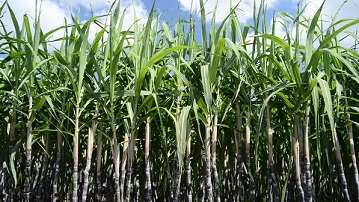
Escalating Geopolitical and Geo-economic threats to food decurity

By Josef Kefas Sheehama.
In current geopolitical and geo-economic discourses, hunger is understood as a threat to be contained, resulting in an often severe social and spatial localization of food insecurity.
For instance, Indonesia will ban exports of cooking oil and its raw materials to reduce domestic shortages and hold down skyrocketing prices according to President Joko Widodo. Indonesia issued a policy obligating all palm oil exporters to ensure that adequate supplies are available in the domestic market and that costs do not follow sharply rising international prices.
The world could run out of food if countries are banning export. Rising geopolitical and geo-economic tensions are the most urgent risks the world faces in 2022, while worsening international relations are hindering a collective will to tackle these concerns. The escalating geopolitical tension between Russia and the Ukraine is threatening the security of the global supply chain. It is also increasingly likely that these attacks will escalate from mostly low-sophistication and temporarily disruptive to sophisticated and destructive, as part of a broader hybrid warfare strategy against Ukraine by Russia.
War has a direct and indirect effect, on food security, undermining it through various channels. Furthermore, conflict deteriorates the environment for the utilization of food. The political and economic radiation of conflict beyond its geographic borders is an important indirect effect as well, which is manifested in the deterioration of regional investment climates and the crowding out of pro-growth policy priorities that would otherwise receive more attention.
Locally, the pressure on Namibia’s food supply will require substantial investment to guarantee food security, as Namibia relies heavily on imported products. Investments need to simultaneously increase small-scale farmers’ productivity and income; diversify farmers’ income through value chain development; and create more and better jobs for the rural poor. Agriculture plays a critical role in transforming economies to reach this goal, along with achieving other essential development goals like ensuring food security and improving nutrition.
Therefore, in order to end hunger and under nutrition while accelerating economic growth, agricultural transformation must become a reality. From traditional technology to modern technology and from agriculture to industry and manufacturing, and then to a high-income service economy. For this process to be successful, the agricultural sector must be modernized. Therefore, governments must prepare conditions including irrigation and improved market infrastructure for farmers to access these inputs and sell their agricultural produce. Namibia will also need to build human capital to ensure a skilled labour force to master new technology, handle logistics and boost each node of the value chain.
Comprehensive research into the causes of food insecurity, followed by significant investment in modern commercial farming techniques, is the only way to overcome food insecurity.
Investment in agricultural inputs based on research is the only key that can successfully assist in the fight against food insecurity, hunger and poverty in Namibia. There is much to be learned from the country’s commercial farmers when it comes to applying modern farming techniques and technology for food security purposes. Most emerging farmers still rely on traditional farming practices, which are unsustainable. There is a need to improve agricultural production in the smallholder sector by facilitating improved farming technology, research and the provision of necessary financial and material support to the communal farmers.
Rising geopolitical and geo-economic tensions are the most urgent risks in 2022. We can also expect further economic confrontation between major powers in 2022/2023. The world’s ability to foster collective action in the face of urgent major crises has reached crisis levels, with worsening international relations hindering action across a growing array of serious challenges.
Meanwhile, a darkening economic outlook, in part caused by geopolitical tensions, looks set to further reduce the potential for international cooperation in 2022/2023. With global trade and economic growth at risk in 2022, there is a more-urgent-than-ever need to renew the architecture of international cooperation. What countries need now is coordinated, concerted action to sustain growth and to tackle the grave threats facing our world today.
We now live in a global village where the supply chain has become more globalized and fragmented. Namibia needs to rely on technological standardization to unite more partners across the global supply chain. Most of the gains from agricultural trade liberalization are associated with domestic reform rather than changes in trade policy. Improvements in agricultural trade can lead to faster and more sustainable growth, thereby reducing poverty along the way.
However, trade liberalization can have some potentially negative consequences when it comes to food security typically related to the risk of price instability resulting from variability in the markets, export bans, potential increase in private stocks and financial speculations. Furthermore, it cannot be said whether price instability would increase or not in the context of open markets as it would depend on the combined effect of these different forces. The challenge in the agricultural sector is how to realize gains from liberalization through macroeconomic reforms that allow international prices to be more stable and transmitted to local farmers, thereby increasing their productivity.
In conclusion, today sanctions can be implemented in a more targeted way and can cause far greater damage than ever before. At the same time, there are stronger incentives for economic cooperation.
Given the range of circumstances facing different countries, it is important for trade rules to incorporate sufficient flexibility to enable countries to utilize the policy tools that are available to them in ways that maximize the benefit of greater food self-sufficiency while minimizing the risks associated with both the restrictions of trade and an excessive reliance on trade.












































